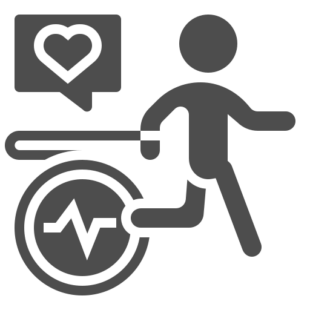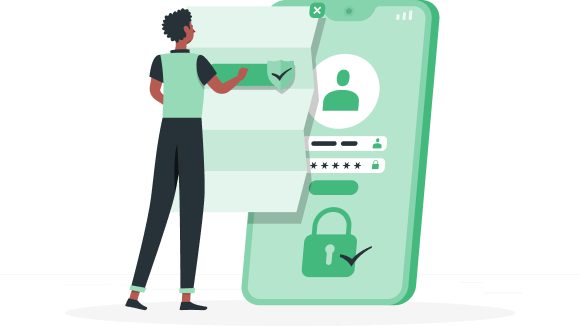

“Come and help us support and improve the mental health of our nation. If you are looking for a career with true purpose, the mental health sector is for you.”
– Claire Murdoch, National Mental Health Director.
This call is to cope with the increasing demand for mental health support in the UK. According to The Big Mental Health Report 2024, there are 28,663 vacant posts in England’s mental health workforce. Still, there is a huge gap between demand and supply. People struggle to get timely help. Many complain that they waited 3-4 weeks to get service, even if it was an emergency. Waiting makes it worse. The crisis for skilled people in this sector seems endless. According to the rule book, each primary care network (PCN) must have at least a mental health practitioner (MHP). The UK often seeks overseas applicants to serve the diverse group of patients they have. This blog is a practical guide for those who want to join this noble job and learn all the necessary measures to enter the mental health care practitioner career. If you are one of them, go through this write-up to find the explanation of the MHP role, its required degrees, experience, verification, registration, and ways of choosing a specialisation area. Don’t worry if you are living outside the UK. You will find guidance for international applicants too!
Who are The Mental Health Practitioners?
Mental health practitioners (MHP) are trained and certified professionals with mental health expertise who support people to overcome their mental health issues. This role was introduced to support NHS’s long-term plan to develop new and integrated primary and community mental health care models. They help people of all ages to manage and treat mental health illnesses. With timely support and advice, they create a link between primary care and specialist mental health services. Thus, they ensure healthcare inequalities and risks are reduced locally. The timely support and primary care minimise the need for secondary care.
Mental health practitioners can be appointed in different setups for different purposes. For Example:
- Healthcare Facilities.
- Educational Institutions.
- Correctional Facilities and
- Private Practices.
Mental health practitioners can also be assigned to various job roles. For example:
- Psychologists.
- Clinical Psychologists.
- Community Psychiatric Nurses.
- Counsellors, Clinicians, and Therapists.
- Mental Health Social Workers.
- Clinical Social Workers.
- Mental Health Nurse Practitioners.
- Mental Health Occupational Therapists.
- Mental Health Community Connectors.
- Certified Peer Specialists.
What Degrees Do You Need to be a Mental Health Practitioner?

You can start with an undergraduate degree in the related field or take open degrees on focused subjects. If you are fresh in this field, taking an undergraduate degree is recommended. Choose a subject that is related to healthcare, such as nursing. To be specific, studying mental health nursing will be the best option. To study nursing in the UK, you have to complete A-levels or IB. In addition to that, a minimum of 6.5 on the IELTS is commonly required for nursing courses. The nursing undergraduate degree typically takes 4 years to complete.
Getting a foundation degree in focused subjects is better if you already have an undergraduate degree. It can be a basic mental health intervention course, like counselling, health and social care, mental health science, and degrees from several different disciplines. You may be required to complete a level 4 diploma in the chosen subject to start. The chosen course or degree must be accredited by the British Psychological Society (BPS).
What Experience Is Needed to be a Mental Health Practitioner?
If you have already started a career, you can show your experiences to join as a mental health practitioner. This is the best qualification anyone can have as an MHP. This can be both paid and non-paid voluntary experience. Having experience shows you are capable of holding the position and performing better. The role can vary according to the organisational need. However, the relevant experience is what matters most.
How Do You Get an Enhanced Disclosure and Barring Service Check?
Alongside the degree and experience, you have to pass the enhanced DBS (Disclosure and Barring Service) check. This is a formal way for the UK government to check a person’s eligibility to enter any profession. This is the most detailed and in-depth criminal record barring check in the United Kingdom. This checks an individual’s criminal history and presence on the children and adult barred list.
You can’t apply directly for an enhanced check. You need to collect the application form from a DBS umbrella body or registered organisation. Some other responsible organisations also perform this check.
Upon checking your enhanced check eligibility, you will get the application form. You need to give all the required information and submit it. It usually takes around 14 days to complete the verification. To get the check, you have to make sure that the details you gave are correct. Otherwise, it can take a longer time. After the submission, you have to wait for the certificate to arrive. In the meantime, you can track or view your DBS certificate online. This tracking service can be used to track multiple applications if registered with DBS.
What does an enhanced DBS check cover? Through the enhanced DBS check, the employer can check your presence on the police national computer and barring list for any:
- Caution.
- Convictions.
- Reprimands and warnings (now replaced by youth cautions).
- Previously stepped-down cautions or convictions.
- Police intelligence reports (local police can add anything they think is relevant).
- Inclusion on the Children’s and/or Barring List (if specified on the application).
They can also check police intelligence reports to ensure the utmost security before hiring you. An enhanced check costs £49.50 only. Paying extra to get a faster check is not allowed.
Where Do You Get Registration from as a Mental Health Practitioner?
After the DBS check, it’s time to be a validated MHP. Two organisations will give you that validation. These are the BPS and the British Association for Behavioural and Cognitive Psychotherapies (BABCP). To make sure that you have the expertise and capability as MHP, these registrations are important. Through these organisations, you will get role-specific registration for 12 months. Providing mental health care is a sensitive job. Your readiness must be updated before serving others. So, you must renew your registration every 12 months to continue service. This will make you stay focused on conduct, ethics, and performance.
The BABCP registration will make you a listed practitioner in the public CBT Register UK & Ireland. The listing will display your name, region, and BABCP membership number.
How Do You Decide on a Specialisation Area as MHP?
As you progress through the career development phases, there will be chances to get specialisation in the focused area. You will gain the opportunity to gain expertise in specific roles and career advancements. In this ever-growing industry, finding your special strength and career path is critical. The following steps may help you find your desired one:
- Learn deeply about the options. Give time to understand the job nature and opportunities. Do some research about the demand for that role.
- Calculate the benefits and limitations of those opportunities to compare. It will bring a clear picture in front of you.
- Match your strength. Your chosen career option might be demanding, trending, and fascinating, but it has to match your strengths. Not every best is best for everyone.
- Test your true interest in it. Being dedicated to a job requires true enthusiasm for it. A long-term service includes passion too.
- Learn about the experience of those who are working in that industry. You will get a deeper insight into the work nature. It will make your decision easier.
- Consult a mentor from this career line. Expert advice will help you choose.
Last but not least, consider the work-life balance. Being a MHP is a sensible job. It can be exhausting to be on call service. Chances to take an effective break will boost your productivity.
How Do You Join an MHP Job in The UK as a Foreigner?
The international opportunity for mental health practitioners is quite significant. NHS often looks beyond the UK and Europe to attract diverse talent. However, it’s not applicable for developing countries. The NHS Employers Code of Practice article (based on the World Health Organisation) published a full list of Red and Amber countries.
As a graduate from outside the UK, you need to show your work experience. Professionally qualified healthcare staff get priority while hiring from outside the UK. At least 10 months of paid experience as a qualified mental health practitioner is required. Through a proper application process, you can find placement in a UK hospital or community setting.
The Health and Care Visa with 5-year validity allows foreigners to come and work for the NHS.
You have to be registered as a mental health practitioner in your country of residence at the applicant stage. After that, you can get registration from responsible authorities according to the job role in the UK.
You have to give all the accessible information for easy verification and safe recruitment. You will have to go through a criminal record check for overseas applicants as a part of the process.
Here is a Bonus Tip for You!
Priorities nurturing the soft skills you need to be a mental health practitioner from today. After all, only a degree can’t make you a compassionate practitioner. We all look for someone trustworthy to share our problems with. Excellent interpersonal skills, the ability to show empathy, strong communication skills, resilience, creativity, and the capability to handle work pressure are some of the must-have skills in an MHP career.
Hopefully, this discussion was helpful and motivating enough for you to join the national vision for a healthy, happier nation. That one step is necessary from your side to make the aim achievable. Who knows? You may be remembered forever for your extraordinary contribution as an MHP!
Related Articles


Why are Good Communication Skills Important In Health and Social Care?

What is Adult Social Care? The Essential Guide for Caregivers You Can’t Afford to Miss!

Top 10 In-Demand Healthcare Jobs in the UK for 2025: Your Guide to a Rewarding Career
- All Courses
Personal Development (1217)
 Employability (338)
Employability (338) Management & Administration (287)
Management & Administration (287)Health & Social Care (267)
 Health and Safety (251)
Health and Safety (251)Business (206)
IT & Software (188)
 Health and Fitness (168)
Health and Fitness (168) Teaching & Education (147)
Teaching & Education (147) Accounting & Finance (108)
Accounting & Finance (108) Mental Health & Counselling (95)
Mental Health & Counselling (95) Art & Design (83)
Art & Design (83) Science & Technology (83)
Science & Technology (83) Sales & Marketing (78)
Sales & Marketing (78) Construction & Engineering (73)
Construction & Engineering (73) Compliance & Law (64)
Compliance & Law (64)Language (62)
Career Bundle (57)
 Photography & Lifestyle (45)
Photography & Lifestyle (45) Animal Care (34)
Animal Care (34) Sports & Fitness (34)
Sports & Fitness (34)Makeup & Beauty (27)
 Diet & Nutrition (27)
Diet & Nutrition (27) Food Safety & Hygine (21)
Food Safety & Hygine (21)First Aid (19)





0 responses on "How to Become a Mental Health Practitioner?"